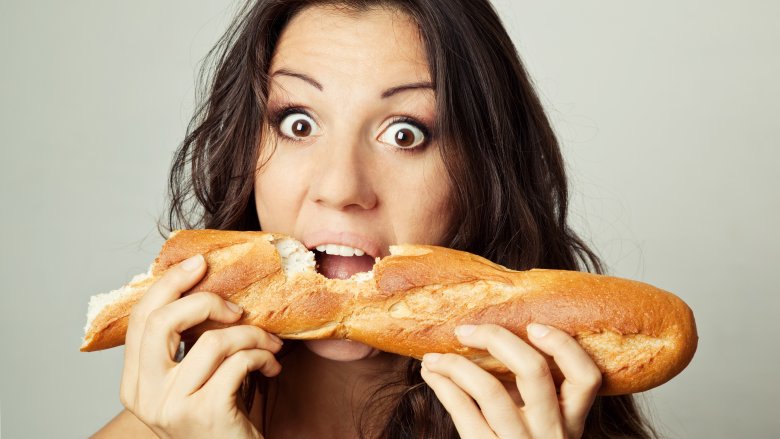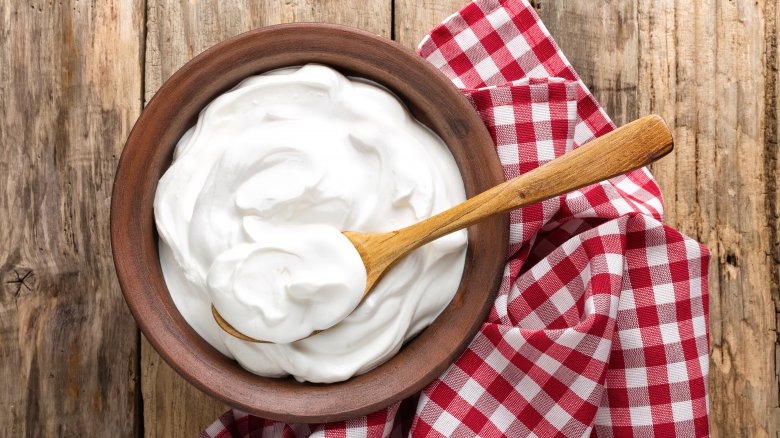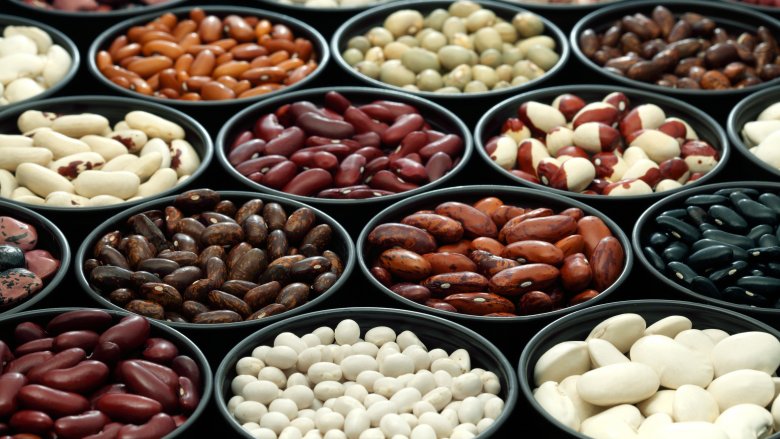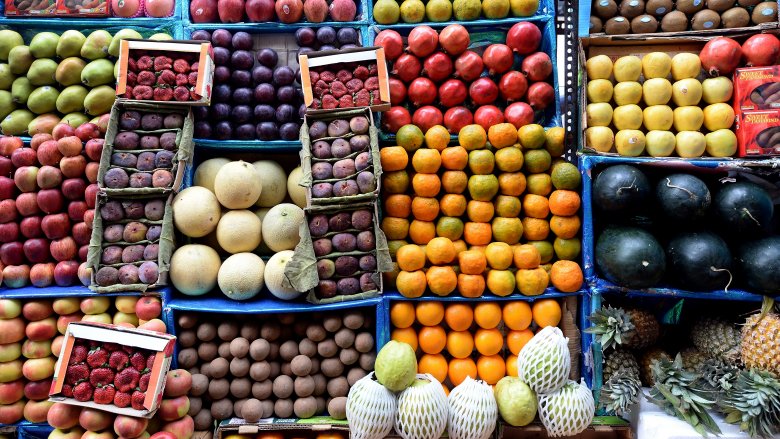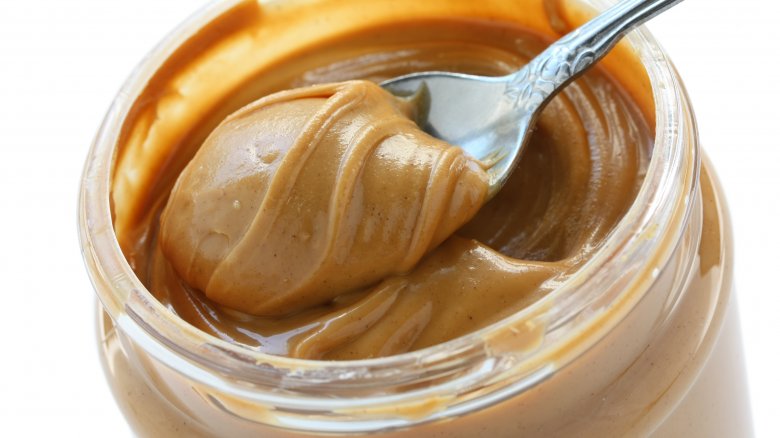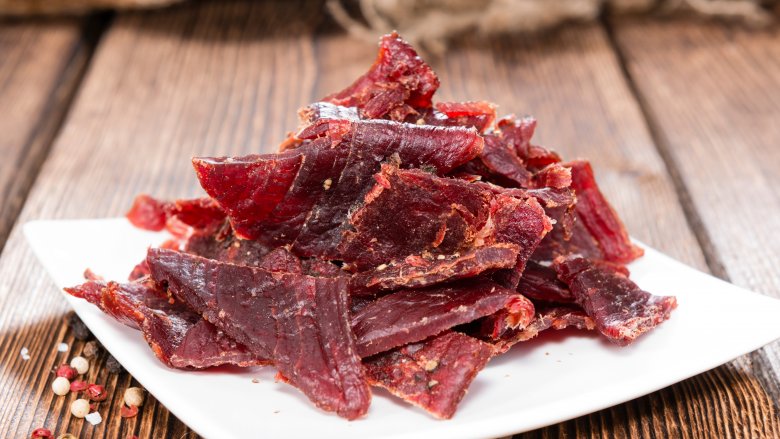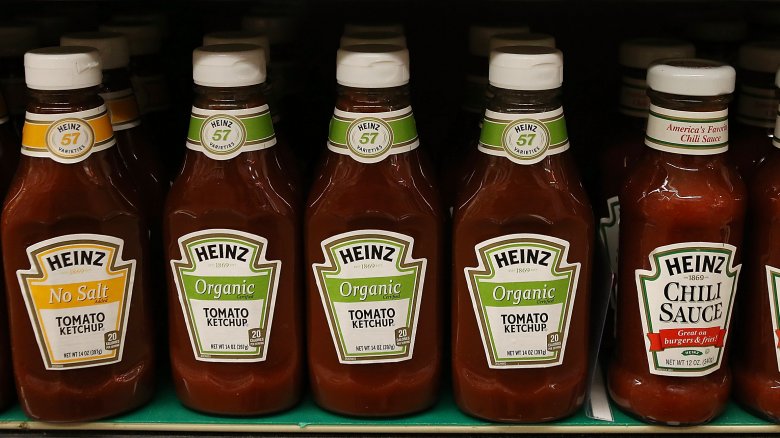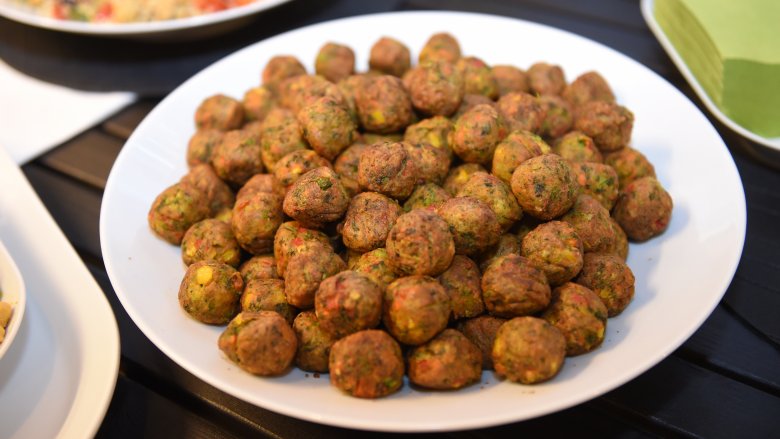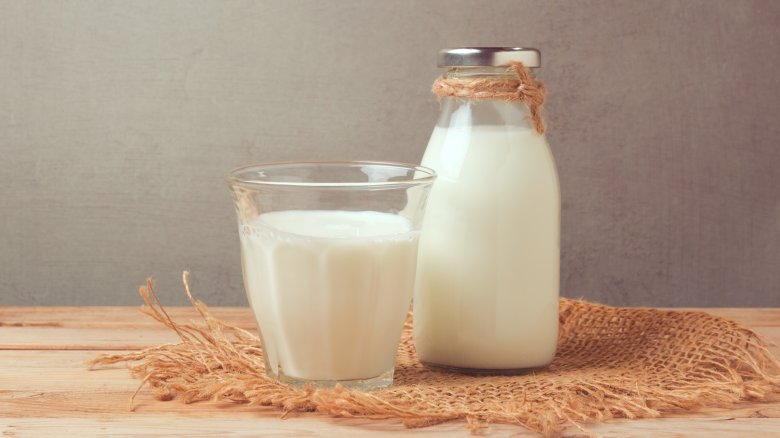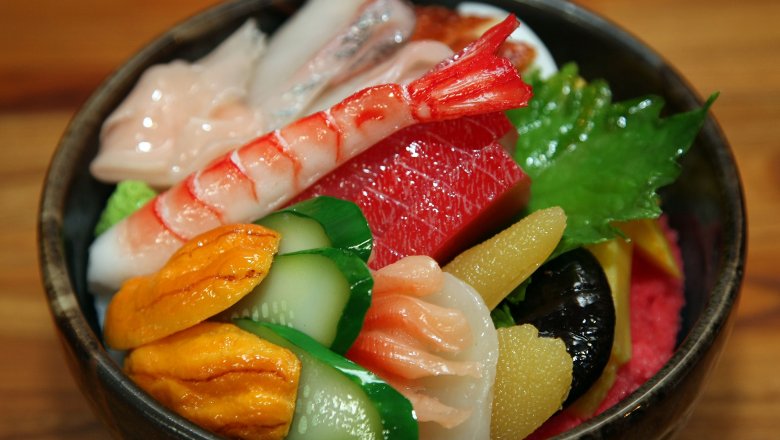Foods That Aren't As Low-Carb As You Think
You've seen this "easy" diet hack floating around for years. Give up your favorite starchy indulgences for a couple of weeks, lose at least five pounds — easy, peasy, right? Not so fast. Low-carb diets are all the rage these days, but they're not as easy to follow to as you might think. There's a lot more to it than just giving up your beloved bread and pasta. Carbohydrates are hiding in some places you would never, ever suspect — especially sugary foods. Giving up carbs (the right way) might involve ditching some foods you previously thought were safe. I spoke to some experts, and here's a list of foods that aren't as low-carb as you might think.
Yogurt
By itself, yogurt isn't too high in carbs. Adina Pearson, a registered dietitian, told me, "Yogurt is made from milk, and as such, contains lactose — a naturally occurring sugar. Plain yogurt, without added sweeteners, will contain about 12 grams of lactose per 8-ounce portion." But additives are where it gets tricky. Pearson continued, " "However, flavored yogurts, unless artificially sweetened, can have three to four times that sugar content." So either stick with plain, or make your own.
Beans
Cheap, versatile, and chock-full of nutrients, beans are a staple food for millions of people around the world. But just because they're super good for you doesn't make them low in carbs. Registered dietitian Michelle Blum told me, "Beans have a reputation for packing a lot of protein, but they are still a carbohydrate. One cup of black beans has 41 grams of carbohydrates, which is as much as two slices of bread!" That's a lot!
But the carbs you do get from beans are healthy. Registered dietitian Rachel Lustgarten told me, "However, much of the carbohydrate grams in beans come from fiber, a carb that is not easily digested by the body, aids in fullness, and slows down the digestion of food." So, they may be suitable for some lower carb diets, as long as you consume them in moderation.
Fruit
Delicious, nutritious, and 100 percent natural, fruit is among the tastiest food on the planet. And it comes in many shapes, sizes, colors and flavors. But despite the fact that it literally grows on trees, it's not always suitable for a low-carb diet because all fruits have natural sugar content. They're still lower in carbs than a plate of spaghetti, but they definitely have an impact on your carbohydrate intake. So definitely do your homework before downing a plate full of grapes.
Peanut butter
Even though it's healthy and energy-packed, peanut butter does have carbs. "Peanuts, like beans, are legumes, containing a winning combination of protein and carbs," noted Lustgarten. "More than half of the carbs in peanut butter come from fiber, making it a smart choice — in limited quantities!"
If you're buying peanut butter, however, you have to be savvy. Lustgarten recommends you "opt for natural peanut butter with no added sugar." That's because some brands might be adding sweeteners to the blend, which can jack the carb count way too high.
Jerky
Jerky is very often thought of as a great go-to snack for low-carb dieters — meat is always a safe, carb-free snack, right? But it's no guarantee that jerky is optimal for a lot of lower carb diets. According to Lustgarten, "Meat jerky, particularly new artisanal and gourmet jerky brands, are often touted as low-carb options, suitable for paleo or low-carb dieters. In fact, these cured meats often have a lot of added sugar, plus they are not as filling as fresh meat since much of the water — which is filling — is removed in their preparation." So to be on the safe side, stick with regular, non-dehydrated meats. And if you're on the road with no options, make sure to read the label carefully.
Condiments
The condiments section of the grocery store can be a veritable minefield, even when you're aware of the ingredients. For Lustgarten, though, you can't trust taste alone. "Adding condiments like ketchup or sauces like marinara to your low-carb food may seem harmless, but these food items are often packed with added sugar, even though they do not taste sweet," she said. "This is especially the case with many low-fat or fat-free salad dressings." She said those products often swap out fats for other ingredients, which often are not low in carbohydrates.
Chances are you're safe with mayonnaise. But definitely read the labels on any marinara, ketchup, and salad dressing labels. And while barbecue sauces are out, many hot sauces are in, like Tabasco, which is free of carbohydrates. Mustard is also a safe bet unless it's paired with honey, which will be evident on the label. So the rule of thumb applies: If you didn't make it yourself, read the label!
Meatballs
Meat is an essential part of most low-carb diets — it's protein-rich, super flavorful, and very satisfying. But just as jerky has hidden carbs you might not be aware of, so too can other meat options. And while ground meat itself is completely low-carb, it's often paired with other ingredients depending on how it's being served.
Meatballs, one of the most common formats for ground meat, do indeed have carbs, as most recipes call for breadcrumbs or torn pieces of bread. So when it comes to meat, stick to formats you know are safe for your diet, or of course, make it yourself.
Milk
Cow's milk, the most widely available and popular milk out there, is nourishing and chock full of calcium. But just because it's essential for good growth and development doesn't mean it's safe for low-carb dieters. Dr. Catherine Metzgar, a nutrition expert, explained that, "Milk is actually relatively high in carbs, and has about 12 grams of carbs in a single cup!" That's more than you might expect, so you'll want to look for alternatives that won't wreck your diet. Metzgar suggested a couple, saying "Try putting heavy cream or coconut milk in your coffee instead."
Sushi
Sushi as it's generally known and served in the United States, is fish served with nori, rice, and other ingredients depending on what you order. And it can be pretty good for you as long as you avoid the fried stuff and the mayo-based sauces. Susan Bowerman, a registered dietitian, said, "Sushi has two things going for it: It's a tasty way to get more fish in your diet, and most sushi is very low in fat, too." Plus it's delicious.
It is not, however, low-carb. Bowerman continued, "The white rice is a highly refined carb, and the rice used in sushi has even more carbs than 'regular' white rice." Additionally, she said the way the rice is treated can have an impact. "The rice is seasoned with vinegar, salt, and sugar, so the sugar drives the carb content even higher." Plus, Bowerman noted, even the nori has carbs. So you're better off eating sashimi — without the rice of course.
